














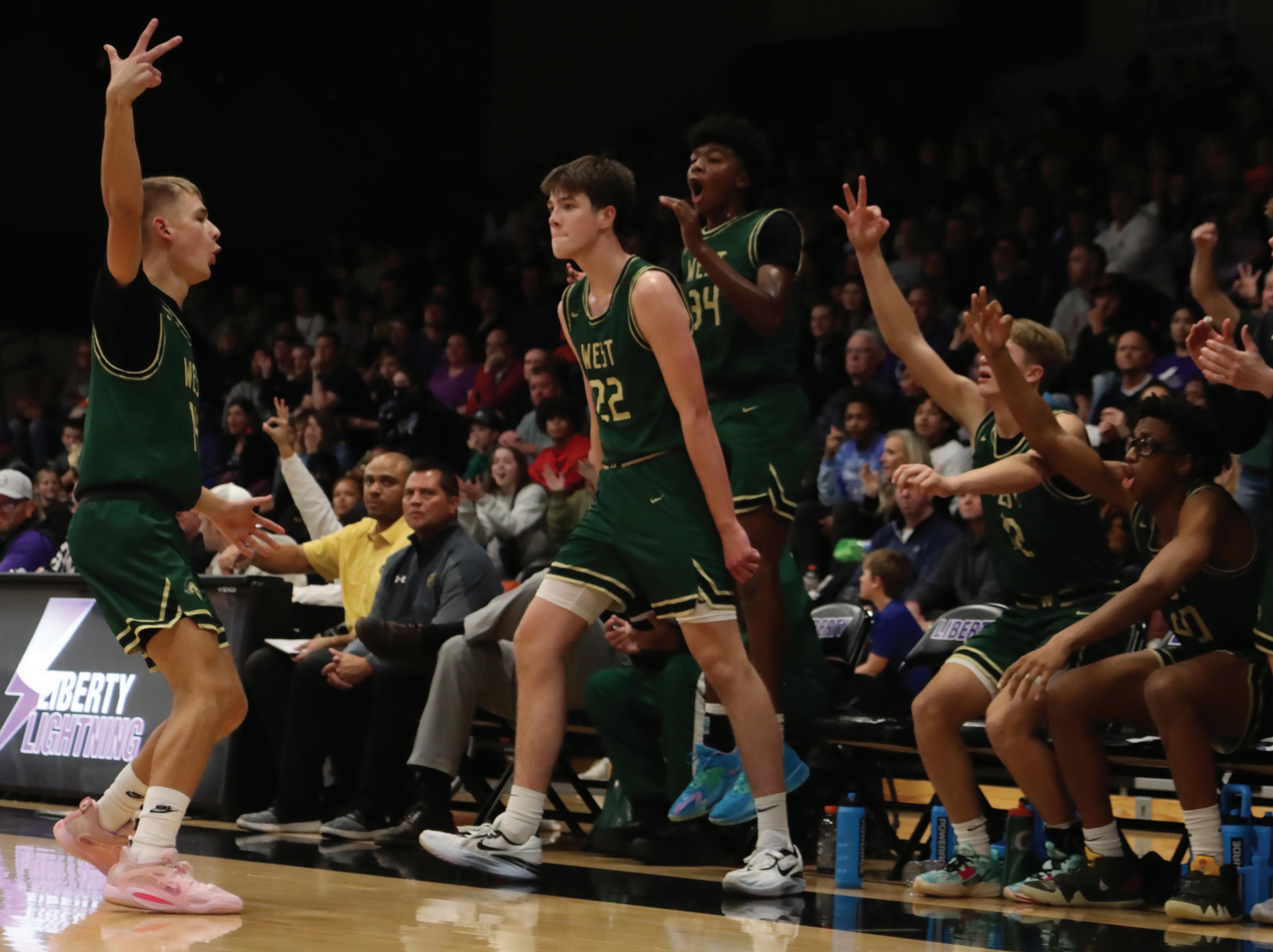
Happy New Year! We hope 2022 provided you with an abundance of good memories, and that you are ready to tackle 2023 (with a WSS in hand, of course).
Moving into the new year, we encourage you to show appreciation for the people who had an impact on you. As a special education teacher, Steve Merkle has improved the lives of countless students. On page 18, we share his journey to teaching and his contributions to our community.
In a few days, West’s East and Southeast Asian families will celebrate Lunar New Year. Flip to page eight to read about the traditions different regions participate in.
In the build-up to the Super Bowl, Fantasy Football players reflect on their own football seasons. To learn more about the process and history of this online game, turn to page 28.
We hope you enjoy the first of many great publications in 2023. Happy reading!
Mailing address: 2901 Melrose Ave., Iowa City, IA 52240 Website: wsspaper.com Email: westsidestorypaper@gmail.com
West Side Story reflects the views of the staff and does not necessarily represent the opinions of the school administration, faculty or student body. Students who want to join WSS should enroll in Foundations of Journalism. For more information, go to wsspaper.com/join.
Mailing address: 2901 Melrose Ave., Iowa City, IA 52240 Website: wsspaper.com/ads Email: westsidestorybusiness@gmail.com
Letters to the editor may be submitted to room 111, emailed to westsidestorypaper@gmail.com or mailed to the school. All letters must be signed. Names will be published and identities verified by the opinion editor. Letters must not contain personal attacks against an individual and may be edited.
The WSS strives to correct its errors. If you notice any inaccuracies, contact westsidestorypaper@gmail.com.
It is the policy of the Iowa City Community School District not to discriminate on the basis of race, creed, color, religion, national origin, gender, age, martial status, sexual orientation, gender identity, veteran status, disability, or sociaeconomic programs, activities, or employment practices. If you believe you have (or your child has) been discriminated against or treated unjustly at your school, please contact the Equity Director, at 509 Dubuque Street, 319-688-1000. Please contact westsidestorypaper@gmail.com for questions or comments.
FRONT COVER DESIGN BY SILA DURAN
NEWS BRIEFS 04
AFFIRM OR OVERTURN 06
LUNAR NEW YEAR... 08 NEXT MEAL. 10
PROFILE
BEHIND THE SCENES 12 BIZNESS 14 DOUBLE LIFE 15
MR. MERKLE’S MAGIC 18
CHILLY CHIC 24 2022 MOVIES IN REVIEW 25 THE RADISH 26
SPORTS FANTASY FRENZY 28 GYM RATS 30 PREGAME FUEL 32
YES, I CAN WALK 33
PASS OCTOBER, PAY $200 34
Instagram: @wsspaper & @westhighathletics
Twitter: @wsspaper
Facebook: @wsspaper Tiktok: @wsspaper YouTube: West Side Story
Zaira Ahmad* (she/her) Profiles Editor
Jack Alden (he/him) Reporter
Defne Bayman (they/she) Artist, Photographer, Designer
William Cheng* (he/him) Visual Editor
Maya Chu* (she/her) Feature Editor
Ella De Young* (she/her) Managing Editor
Heidi Du* (she/her) Copy Editor
Sila Duran* (she/her) Assistant Design Editor
Jack Furlong* (he/they) Reporter
Sachiko Goto* (she/they) Design Editor
Lilly Graham* (she/her) News Editor
Camille Gretter (she/her) Online Editor-In-Chief
Eva Jordan* (she/her) Entertainment Editor
Krisha Kapoor* (she/her) Print Co-Editor-In-Chief


Reem Kirja (she/her) Photographer, Reporter
Kamakshee Kuchhal* (she/her) Assistant Copy Editor
Jane Lam (she/her) Reporter
Jessie Li (she/her) Reporter
Gianna Liu (she/her) Photographer, Reporter
Jay Mascardo (she/he/they) Photographer, Reporter
Ginger McCartney (she/her) Artist, Designer
Helen Orszula (she/her) Artist, Designer
Esther Park (she/her) Artist, Designer
Lily Prochaska* (she/her) Sports Editor

Mrudani Ramkumar (she/her) Reporter
Katherine Shoppa* (they/them) Print Co-Editor-In-Chief

Anna Song (she/her)
Artist, Designer
McKenna Stephens (she/her) Designer, Photographer
Marie Stier (she/her) Reporter
Rosemary Timmer-Hackert* (she/they) Opinion Editor
Erinn Varga (she/her)
Artist, Designer
Angel Wells-Lu (she/her) Artist, Designer
Sara Whittaker (she/her) Adviser
Athena Wu (she/her) Artist, Designer

WSS recaps winter news from No Tardy December to the state debate tournament.

 BY HEIDI DU & REEM KIRJA
ART & DESIGN BY ERINN VARGA
BY HEIDI DU & REEM KIRJA
ART & DESIGN BY ERINN VARGA









The ICCSD has made several new courses available to junior high and high school students for the next school year. Classes such as Student Built House, Geometry in Construction and Introduction to Early Childhood Education will be added to West High’s curriculum. Additionally, Pre-Calculus Honors will be offered as AP Pre-Calculus, Art Forms as Exploratory Art and PALS as Peer to Peer. The ICCSD also removed courses including Residential Construction and Fundamentals of Computer-Aided Design. Course registration starts at the end of January.
Course registration for the 202324 school year begins in February.

The West High speech and debate team competed in the state debate tournament Jan. 6 through 7.
To kick off their basketball seasons, both the boys and girls basketball teams defeated Clear Creek Amana in their season openers Nov. 30. In a cross-town doubleheader against Liberty Dec. 9, the girls team had a narrow 42-40 win with Dartmouth commit Meena Tate ’23 scoring 15 points. The boys team won 68-51 with Jack McCaffery ’25 and Kareem Earl ’24 scoring 27 and 17 points respectively. The basketball teams faced off against City High at Coralville’s Xtreme Arena Jan. 8, the first high school basketball game hosted at the arena. Carnegie Mellon commit Anna Prouty ‘23 contributed 16 points and 13 rebounds to the girls team’s 58-43 win. The boys team had a narrow 63-64 loss.
The West High speech and debate team traveled to Des Moines Area Community College to compete in the Iowa High School Speech Association state debate tour nament Jan. 6 through 7. The team won the state title for the third year in a row. Andrew Dong ’24 and Ben Kleiman ’24 won Public Forum debate and Lincoln Beihl ’25 championed C-House Congress. In Lincoln-Douglas debate, Nate Weimar ’23, Jayden Shin ’23, and Spencer Thomas ’24 won in a three-way tie. In Policy debate, Maya Chu ’23 and Ashley Seo ’23 were runners-up and Edward Li ’26 and Adam Salem ’26 were semifinalists. Weimar, a nationally-ranked debater, also won the Dowling Catholic Paradigm tournament Dec. 11 and has four Tournament of Champion bids this year.
Kareem Earl ‘24 dunks the ball against Liberty Dec. 11.












With over 65% of the student population having at least one unexcused tardy in the first trimester, West High administration implemented “No Tardy December” to improve attendance and timeliness. The office recorded 563 unexcused tardies in the two days before the policy was enacted and 274 in the two days after. Under the new policy, late students must retrieve passes from the Commons or Main Office. Additionally, stu dents will receive a call home, either from a teacher or administrator, depending on how many times they are late to class. Students with more than five unexcused tardies between Jan. 9 and 27 are not allowed to at tend the winter dance Jan. 28. In the weeks before winter break, students with no tardies were eligible to win different rewards, including Airpods and a MacBook.


Theatre West took to the Arganbright Auditorium stage Dec. 1 through 3 to perform their rendition of “Clue.” Based on the board game, the production features the murder of Mr. Boddy, a mysterious millionaire. The play centers around six characters invited to Boddy Manor, each with a dark secret from their past. The cast included Lyova Merkle ’23 as Wadsworth the butler, La’Nya Franklin ’23 as Miss Scarlet, Maddie Struthers ’24 as Mrs. Peacock, Tess DeGrazia ’23 as Mrs. White, Ahmed Elsheikh ’24 as Colonel Mustard, Andreas Warren ’24 as Professor Plum, Xion Owens-Holst ’24 as Mr. Green, Niles Granfield ’24 as Mr. Boddy and Briar Martin ’24 as Yvette. Theatre West will take a fairy-tale turn for their performance of “Beauty and the Beast” from April 13 through 15.

The cast of “Clue!” dines in Mr. Boddy’s manor.
Both the boys and girls wrestling teams competed in the Dan Gable Donnybrook wrestling tournament at Xtreme Arena Dec. 3. In girls wrestling’s first full season sanctioned by IGHSAU, Jannell Avila ’23 finished second in the 170-pound weight category. West hosted the Tom Lepic Invitational Jan. 7 with Alexander Pierce ’26 and Justin Avila ’25 championing their weight classes. Max Gerke ’24 won the 200 individual medley and 500 freestyle events as the boys swim team defeated Cedar Rapids Jefferson in their season opener Nov. 29. The team finished third overall at the Little Hawk Invite Dec. 17 with Holden Carter ’24, Winston Fan ’26, Ian Cabellero ’23 and Christian Janis ’23 winning the medley relay. On Jan. 6, the girls bowling team defeated Marion 2221-1928 at Colonial Lanes. On the same day, the boys bowling team lost to Linn-Mar 2642-2919.
 Dillon Croco ’24 swims butterfly at the
Dillon Croco ’24 swims butterfly at the
 BY LILLY GRAHAM
BY LILLY GRAHAM
After being instituted under the Civil Rights Act of 1964, affirmative action has played an important role in offsetting long-standing systemic discrimination. Affirmative action is a set of policies and practices that attempt to incorporate equity into job and educational opportunities by favoring those who are historically disadvantaged, such as women, racial minorities and people with disabilities. Past Supreme Court rulings have limited affirmative action’s scope, and once more, its place in college admissions is under scrutiny.
During the week of Oct. 31, the Supreme Court heard arguments against the legality of Harvard University and the University of North Carolina’s race-conscious admissions policies after the two cases were filed separately in 2014. Students for Fair Admissions, a nonprofit group of over 20,000 students and parents that advocates for eliminating the consideration of race in college admissions, initiated both cases. The organization alleges that by evaluating subjective measures like courage, likability and kindness in prospective students, Harvard creates a cap on the number of admitted Asian students and engages in discriminatory behavior. The case against UNC argues that the university discrim-
inates against white and Asian students due to a preference for Black, Hispanic and Native American applicants. Harvard denies discriminating against Asian students, and both universities responded that race-conscious admissions policies are lawful under Supreme Court precedents.
If affirmative action is overturned or restricted, the consequences will reshape the college admissions process, affecting both applicants and universities alike.
Precilia Kangni ’24 supports affirmative action and, as a Black student, recognizes how it helps her chances of getting into college, especially when competing against those who are more privileged.
“Historically, people have been marginalized because of race or class,” Kangni said. “Affirmative action is meant to give people who do have those disadvantages a chance … a leg up to being put down for so many years.”

However, Kangni believes race should not be the key determiner in one’s acceptance, but should instead be viewed within the context of a holistic admissions process.

“[Race] shouldn’t be seen as something colleges should meet as a quota,” Kangni said. “It
should be considered [the same] as a college essay is considered … a part of who you are.”


Although she hasn’t yet applied to college, Kangni has already experienced the benefits of affirmative action firsthand. Last summer, she attended a competitive program for rising high school juniors at Carleton College that explored the “African American Experience” and life at a liberal arts institution.
“Having those opportunities where previously it wouldn’t [have been] offered like it is now … is what makes affirmative action so positive and [have] such a big impact on people’s lives because of how disadvantaged they could be without it,” Kangni said.
Supporters of affirmative action argue it encourages upward mobility and diversity on college campuses. Still, race-conscious admissions policies can be seen as discriminatory toward one minority in particular: Asians.
A 2009 Princeton University study found that Asians applying to extremely selective institutions faced odds six times as high as similarly-qualified Hispanics and 16 times as high as Black applicants. Further, on the SAT, Asians must score 270 points higher than Hispanics and 450 points higher than Black students (on a
For the sixth significant time since 1974, affirmative action is under the Supreme Court’s review.
scale of 1600) to have an equal chance of admission to high-caliber universities.
Derrick Pennell ’24 recognizes that being Asian places him at an academic disadvantage when applying for college. Consequently, he believes that affirmative action largely doesn’t have a place in a fair college admissions system.
“It comes down to whether or not colleges should sacrifice their diversity in order to pick only the students who show the most potential, or whether they keep their diversity, but potentially exclude a bright student,” Pennell said. “[Removing affirmative action], technically speaking, would provide an equal chance for all races because race wouldn’t be even considered.”
Kangni believes the higher standard placed on Asian applicants isn’t a fault of affirmative action, but instead of the Model Minority Myth, which is the stereotype that Asians achieve more than other minorities due to inherent talent and strong work ethic. Kangni believes the execution of affirmative action should be improved by not believing harmful stereotypes.
“There’s not one way to be Asian and one way to be Black. Having this unrealistic expectation that all Asian people are smart or academically gifted is not good,” Kangni said. “It’s the stereotypes that play into using affirmative action as a way to push agendas that are discriminatory.”
Pennell agrees that there is a generalization of academic excellence targeted at Asians.
“There’s the stereotype of Asians being smart,” Pennell said. “[Affirmative action] is at the detriment of Asian and white students … not all Asians rise to that same expectation.”
With a 6-3 conservative Supreme Court major-
ity likely to release a decision this summer, affirmative action’s end seems imminent. How to ban race from college admissions then becomes tricky. For example, students may no longer be
Black person. If race can no longer be disclosed, Kangni feels as though she wouldn’t be able to express her full, authentic self in her essays.
“[In my essay], I would talk about struggles and just living as a Black person, but that doesn’t mean everything is a struggle,” Kangni said. “I can’t be raised as who I am and then talk about who I am as a character and not bring up race.”
Although students are allowed to reflect on their race in college applications, Asian students are sometimes discouraged from doing so. A New York Times investigative piece documented a common phenomenon where Black and Hispanic students are encouraged to emphasize their race in applications, but Asian students are advised to stray away from activities or narratives perceived as classically Asian.



“I find it a bit sad [that] Asians have to hide part of their identity because it’s seen so much, while other races get to showcase their heritage because it gives them an advantage,” Pennell said.
If affirmative action is repealed or its influence limited, Black and Hispanic students will face another barrier in their pursuit of higher education, and college campuses will lose diversity. But if race-conscious policies are affirmed, Asian students will continue to be disadvantaged, as they bear the burden of a higher standard of excellence. Pennell acknowledges the issue is complex and without an easy resolution.
able to discuss their experiences with race in college essays.
Kangni views the personal essay as a crucial aspect of any student’s application, and she currently plans on writing about her identity as a
“Every solution we make to help one or more groups just seems to be at the detriment of another,” Pennell said. “No matter what the Supreme Court decides, this truly appears to be a no-win situation.”
PHOTOS & DESIGN BY SACHIKO GOTO
The percentage of American universities that consider the race of applicants at some point during their admissions process.


Students of Asian descent at West celebrate Lunar New Year in many different ways.


Lunar New Year is the most important celebration in Asian cultures. This holiday celebrates the first new moon of the Lunar calendar and is celebrated among family and friends for fifteen days. This year, Lunar New Year be gins Jan. 22. There will be no school Jan. 23, marking the first time the ICCSD has mandated a day off for Asian communities celebrating the new year. Read on to learn how to greet others in various languages and to explore how a variety of East and Southeast Asian communities celebrate this holiday.
Kaoya Roasted duck with a crisp, red skin, served in carefully sliced strips

Chinese New Year is also called Spring Festival, or chun. Families hang up new year couplets, a type of Chinese literature often written on red paper. The couplets vary in style and can be poetic or artistic. Red clothes are also worn to signify luck and happiness in the year to come. People gather with family and friends or video call through the social media platform WeChat.
Tangyuan

Glutinous














Dumplings that can have many different fillings, most commonly folded in a crescent shape


“It’s just a time to get together with your family and celebrate the new year,” Thomas Tong ’26 said.
Food is an important part of the celebration. Northern Chinese eat jiaozi , or dumplings, which are believed to bring fortune to the household. They are stuffed with Chinese spices and minced vegetables and meats such as pork and cabbage. Those from southern China eat nian, or sticky rice cakes. After the family reunion dinner on New Year’s Eve, families watch the China Central Television New Year Gala, an entertainment show broadcasted live annually from major cities in China. Performances include comedy, folk dancing and singing, martial arts and magic shows. These acts feature many diverse performers, representing several distinct ethnic groups of China. During this celebration, it’s also important to set off firecrackers to ward off evil spirits. Additionally, younger generations receive hongbao — red envelopes with money inside — from older family members and family friends, as tokens of good luck.
Lunar New Year, or seolnal , is celebrated widely in South Korea.

“Everyone’s just happy to be there and trying to have a new start, like having new New Year’s resolutions,” Ijin Shim ’24 said.

Rice cake soup usually served in beef broth with garnishes Jeon
Korean pancakes made with vegetables, fish or meat



Many individuals video call relatives who live far away, a form of virtual reunion. During this occasion, it’s very important for children to receive wisdom from elders. They bow down to their elders while wearing traditional clothing, hanboks , when receiving money. Koreans eat rice cake soup to symbolize getting one year older. They also play a traditional game called Yut Nori , which uses four wooden sticks with markings on them, a game board and little, circular game pieces. The sticks are flipped on a blanket or mat to determine how many squares to move on the game board, and the player who reaches the end first wins. This game has been played in Korea since ancient times, and has been passed down from generation to generation.






















Dumplings that can have a variety of fillings and folding methods



Tray of sweets such as candied fruits, seeds, nuts and even candy

Glutinous rice cakes with various fillings, common in northern Vietnam Cha Lua Vietnamese pork sausage
Vietnam also celebrates Lunar New Year and calls it Tet During this celebration, li xi , or red envelopes with money, are given to children by elders. This signifies wishing good luck to the children for the year to come. During this cel ebration, Vietnamese people wear traditional ao dai , an outfit consisting of silk pants, an overlapping robe with slits on both sides, various embroidered patterns, and a small, circular matching fabric headpiece. Since red is considered a lucky color in Vietnamese culture, people eat red sticky rice to bring luck in the year to come. Moon cakes, candied fruits, various types of seeds and sticky rice are popular traditional foods also eaten during this time. Additionally, the Vietnamese Student Association at the University of Iowa hosts a night of Lunar New Year festivities at the University of Iowa Memorial Union. At the function, traditionally-dressed attendees enjoy traditional and modern performances and eat traditional food.
“To me, it really is just a big celebration just welcoming the new year itself and then hoping for fortune and good health for everyone around us in our community,” Kevy Huynh ‘23 said.



Glutinous rice cakes with various fillings, common in northern Vietnam
Thit Kho Trung Carmelized pork belly and eggs

Toasted watermelon seeds with a distinctive red color

Since 2017, West High Supply has provided community members with food and other resources to combat food insecurity.
BY ELLA DE YOUNG AND MARIE STIER DESIGN BY ATHENA WU PHOTOS BY ATHENA WU & COURTESY OF BRITTANY MCCONNELLFood inaccessibility is a widespread issue across the U.S., affecting more than 34 million people nationally. In Iowa alone, one in 14 people face hunger due to food insecurity, or lack regular access to nutritious food, as defined by the Food and Agriculture Organization of the United Nations.
Hunger among children is highly prevalent — in Iowa, one in nine children face food insecurity. The West High community is no exception to facing food insecurity.

Liberty High guidance counselor Mayra Hoskyn, a former West Spanish and Success Center teacher, started the West High Supply, West’s food pantry, in 2017 when she witnessed hunger’s impact on her students.
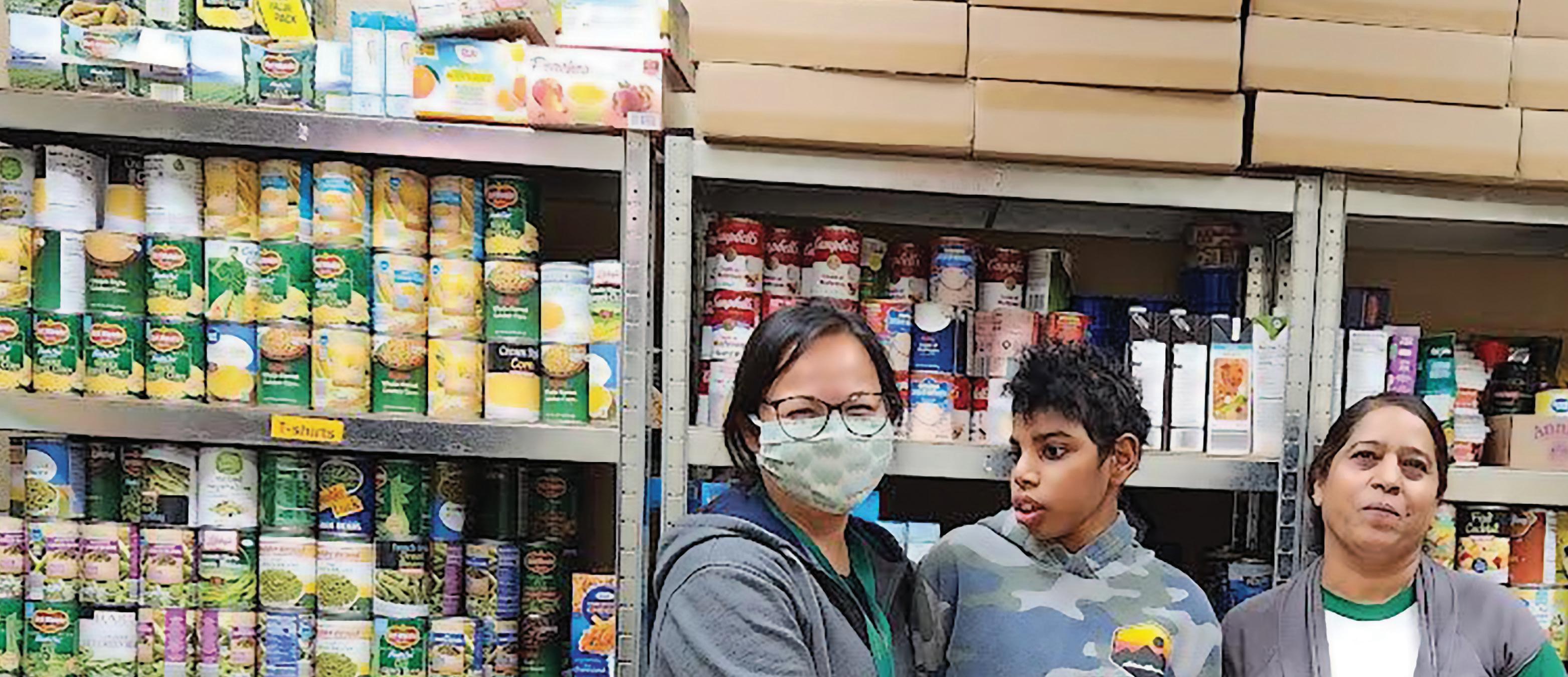
“I wish people knew that it’s very hard for [hungry] students to function and thrive in school,” Hoskyn said. “They tend to not be as connected, less involved, [have] more mental health issues
and other health issues.”
In 2021, as a result of the COVID-19 pandemic, the ICCSD implemented a government-funded Free Meal Program that made lunch free for all students. The following year, when government funding was discontinued, the program was forced to stop, and school meals returned to their pre-pandemic cost.
Liz Kanagy-Imhoff, the West Kitchen Manager, views the end of free lunches for all as detrimental to students’ food security.
“I can imagine that there’s a good number of kids that this is the only meal they get a day,” Kanagy-Imhoff said. “Without a meal, your tummy’s rumbling, and you’re not going to do as well in school as if you had a full meal.”
The Iowa Food Bank Association finds that the impact of hunger on education is profound. Food-insecure students have trouble with concentration, lower academic achievement and
increased school absences, tardies and suspensions.
West paraeducator and West High Supply volunteer Omega Dancel affirms what staff members noticed among the student body before West High Supply was established.
“A lot of the students were hungry,” Dancel said. “The reason why some of the students were having a hard time concentrating was because they were hungry.”
Starting as a simple cabinet, West High Supply has since expanded and now occupies an entire room located between the current guidance offices and front doors.
The program operates throughout the year with help from volunteers as well as donations from community members, which include food, school supplies, hygiene products and graduation gowns.
Additionally, food drives hosted by West High
OVER 40 UNDER 20
Those under 20 were 2.08 times more likely than those over 40 to be food insecure.
Supply triannually provide aid to those in need of food. The most recent drive, which occurred before Thanksgiving Break, provided approximately 60 families with bags full of turkey, stuffing and green beans. For resource drives to prove successful, they require extensive planning and dedicated organizers.
“It’s nice to have food drives, but sometimes, it’s a lot of work to host one,” Dancel said. “In order to maintain one, [we have] to have good relationships [in the community] continue throughout the year.”
One of these relationships is with the Coralville Community Food Pantry, an essential provider of the food stocked at West High Supply. John Boller, the Executive Director of the Coralville Community Food Pantry, advocates for research and policy change to combat food insecurity.
“If someone isn’t getting enough food, it’s not their fault. It’s a systemic societal issue that they’re not responsible for fixing,” Boller said.
West paraeducator and West High Supply volunteer Samina Naz believes everyone, including West students, can support those experiencing
food insecurity through destigmatization.
“There is a stigma; there’s a shame that if you need help, you’re kind of hesitant. So, my goal and wish is that we could move forward from that and make it no big deal,” Naz said.
Yet, West High Supply works hard to maintain discreteness when distributing resources so as not to draw unwanted attention to the students.
“We try to be mindful about not giving a plastic bag. Students are getting free food. We try to make sure that reusable bags are presented in a good way,” Dancel said.
Similar to West High Supply, Kanagy-Imhoff and the lunch staff try to be subtle when a student is unable to pay for lunch.
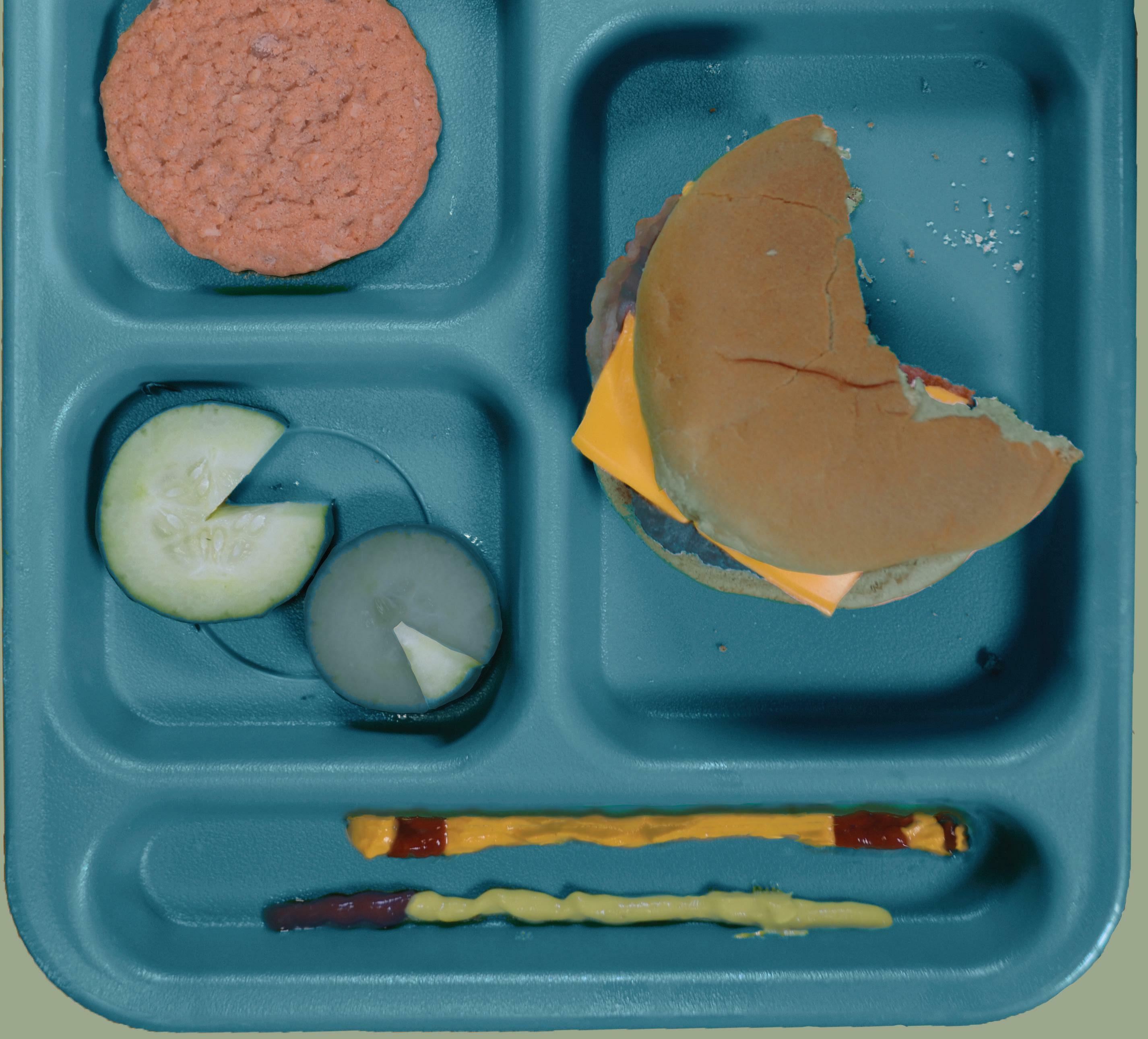
“I feel that we’re very safe,” Kanagy-Imhoff said. “We make sure we show discretion, so other kids don’t know they’re struggling.”
When addressing food insecurity, Hoskyn believes spreading awareness and understanding is critical.
“It’s about educating,” Hoskyn said. “We have a chance to educate parents and students that it’s not the student’s fault, it’s not the parent’s fault,
it’s something that’s a system’s fault.”
Naz agrees that educating the West community on food insecurity is important and looks to first inform students of local resources.
“But now, [we need to] let our students know about [West High Supply],” Naz said. “[We] always have more knowledge for everybody that is accessible; [our resources are] for everyone, for students, staff and anybody.”
Often, providing food is an avenue for solving more complex problems in a community.
“The issue of hunger is not just related to food; it’s related to poverty and inequalities … That includes better wages or affordable housing, affordable health care, and of course, access to food,” Boller said.
Hoskyn holds that without policy changes, food insecurity will continue to diminish the health and education of people worldwide.
“Unfortunately, until we can resolve food insecurity, other issues can’t be triaged or helped,” Hoskyn said. “It’s something that has to change in a systematic way.”

Get to know a few of the West High staff members that work to keep the show running smoothly.

West alum Eric Kim ’14 has been a paraeducator at West for the last two years.
To him, being a paraeducator isn’t simply about teaching. Kim works through problems with students step by step, understanding that patience is the most important part of his job.
“You have to get a good connection. I have to try hard to get to know that person before I help,” Kim said. “Otherwise, it’s just me telling them what to do.”
Kim is also involved in the greater West High community; last year, he chaperoned at prom.
“I always [told] my friends that if I had a choice, I want to go back to high school to restart. And then, it actually happened,” Kim said.
Kim considers West to be more than a workplace or his former school.
“It feels like home, maybe because I [went to school] here, but it feels comfortable to be around here,” Kim said.
Alongside working as a para, Kim has worked at Melrose Meadows Retirement Community for eight years. Similar to his work as a para, helping others is a crucial part of the job. He is a server and also volunteers to help with fitness classes and interacts with the residents.
Kim has also worked as a chef at Melrose Meadows. He has an affinity for cooking, especially baking, inspired by his Korean heritage.
“I am more into Asian-style baking than European. Whenever I went to Korea, I always went to the bakery, and I wanted to make [the sweets] at home,” Kim said.

His favorite thing to bake is Japanese roll cake; an airy dessert filled with cream. The cake is sweet, much like Kim’s disposition when it comes to helping others.
BY MAYA CHU & GINGER MCCARTNEY
Originally from El Salvador, Jose Diaz Rosa’s childhood was cut short due to the Salvadoran Civil War from 1979 to 1992. At the age of 14, long before being a part of the West High custodial staff, he served in the Salvadoran army.
“It was kind of traumatizing, growing up in an environment like that,” Diaz Rosa said. “It can make you a man real quick.”
After serving in the army, Diaz Rosa fled El Salvador at 17 years old in search of a better life.
“[The journey was] stressful because you don’t know where you’re going. You just follow the stars … and find your way there,” Diaz Rosa said. “There was no food, no water. I traveled the ocean for two months, made it halfway and then I just walked.”
When Diaz Rosa arrived in the U.S., he made a stop in Texas before coming to Iowa.
“I saw a magazine when I was in Texas that said, ‘Iowa: Land of Opportunities’ … I was like, ‘I’ll just give it a shot,’” Diaz Rosa said.




In Iowa, Diaz Rosa worked jobs like maintenance and drywall installation before settling into his position at West. In addition to being a custodian, he enjoys photography as a hobby and a side job.
“I love photography. It makes me relax. It makes me try to understand what the picture is about and the story behind it,” Diaz Rosa said.

As a five-year member of the custodial team, Diaz Rosa has developed a strong connection to the West community.
“I think West is pretty family-oriented. That’s what I like about it … everybody’s nice,” Diaz Rosa said. “Life is very tough … But I think we can all work together to make this world a little better for us, for you guys.”

West High building substitute Quintin Lenti doesn’t like to conform. Whether in music or teaching, they em brace an unconventional approach to each of their passions. Lenti grew up in Washington, playing the piano.
“I did [classical piano] for a while, but I never played it the same way twice,” Lenti said. “I play different notes, different rhythms … everything is different every time.”

This spirit of originality is reflected in Lenti’s teaching philosophy as well. They attended the University of Puget Sound to study math teaching, and believe schools’ current approach to the subject is flawed.

“It took me a long time to realize that the main reason people tend to not like math is [the lack of] community,” Lenti said. “When people say they’re bad at math, they kind of also mean, ‘I’m not respected in a math classroom,’” Lenti said.
Lenti prioritizes collaboration in every classroom they encounter.

“Anything I [can] do to make a … classroom more community-oriented will automatically make it a better classroom,” Lenti said.
As a building substitute, Lenti has the unique opportunity to take inspiration from various classrooms.
“Lots of people think of all the subjects in a school as completely separate. But if I sit in on a humanities class, I learn so much,” Lenti said. “People sit in circles … you just sit in circles if you want people to understand each other. That’s just so fundamental, [but] in math, they couldn’t even imagine sitting in a circle.”
In the future, Lenti hopes to take their teaching philosophy into their own classroom.
“The people I’m meeting here [and] the references I now have [provide] a great jumping off point to get a career anywhere,” Lenti said.
Brittany McConnell ’00 has been a guidance office secretary at West for just over one year. For students, McConnell is a new presence at the school, but for West — and many other staff members — she’s a familiar face.


“Being [at West] now, I still feel that welcoming, family feel, which I adore,” McConnell said.
McConnell was classmates with Maureen Head, coached by Kay DiLeo and taught Spanish by Dave Rosenthal. In some ways, West has stayed the same since McConnell graduated in 2000, but in other ways, she feels aspects have drastically changed.
“I don’t know what it’s like for [students] here honestly, like the computers, technology is so different,” McConnell said.



McConnell would rather spend time outdoors taking photos, hiking or biking with her two daughters than be engulfed in a computer screen.

“I [want] to help promote our environmental impact as humans,” McConnell said.
McConnell has carried many skills she learned at West throughout her life, including the Spanish she learned from her former teacher and now co-worker, Señor Rosenthal.
“I had not used so much Spanish in my life until I got this job, and I owe it all to him honestly. I kept that in my brain for 22 years,” McConnell said.
As a secretary, McConnell does more than just interact with students and parents. She has the opportunity to learn, just like she did 22 years ago.
“[West has] all these different cultures, all these different experiences,” McConnell said. “You can learn so much from all of that about your own self.”

If Biswash “Biz” Bhattarai ’23 had to pick one word to describe himself, it would be ambitious.
“I’m ambitious in the sense that I try to do a lot,” Bhattarai said. “Whether through extracurriculars or academics, I’m always trying to do or achieve more. I go 100 percent into what I’m interested in.”
Social studies teacher and Investing Club sponsor Andrew Bloom believes Bhattarai’s ambition radiates to others.
“He’s got an air of cool confidence. That’s the really cool thing about Biz,” Bloom said. “When he walks in, you know that he knows what he wants to do, what his goal is, and I think that separates him from his peers.”
Throughout high school, much of Bhattarai’s ambition has been directed towards business. After stumbling across educational YouTube videos during the COVID-19 pandemic, Bhattarai found the complexities of business appealing.
“I liked the multifaceted nature of business,” Bhattarai said. “It connects to economics and psychology. The reason I’m interested is because it encompasses a lot of things, and that [gives me more to] explore in the future.”
Bhattarai used his new knowledge of economics to work at his family’s international grocery store, Taj International, for more exposure to the business world. From being a busboy to managing daily sales in a spreadsheet, Bhattarai values the experience he has gained from working around the store.
“Initially, it started off with stocking shelves, but then, it developed into understanding competitors, what markup would be the best and how to attract customers,” Bhattarai said. “Be-
sides researching on my own through the internet, [Taj International] gives me a physical place to learn business. And it gives me a mentor, my dad, who can teach me.”
Although it is difficult for Bhattarai to find
Bhattarai said. “Bringing my brother in and helping him find his interest in business and showing him what he could be doing in the future is the most rewarding part [of working].”
Bhattarai pursues his interests in economics at West through Business Professionals of America, a student-led organization that competes nationally in business management and information technology events. As part of BPA’s Executive Board, Bhattarai recruits new members and creates a sense of community within the club.
“I didn’t know how people-centric business was. Since I got into business through finance and through numbers, I was just oblivious to the people side. BPA opened me up to other people [and] taught me to be more considerate,” Bhattarai said.
Bhattarai is also the founder of Investing Club at West, which meets every Friday during AFT in Room 232. Members learn about investing and participate in a virtual stock-exchanging competition. Bloom believes that Bhattarai’s dedication to Investing Club sets him apart from other people.

-ANDREW BLOOM, INVESTING CLUB SPONSOR

time to work due to college applications and schoolwork, he finds that introducing his younger brother, 10-year-old Binay Bhattarai, to the world of business makes finding the time worth it.
“We can work together on super busy days when we get a shipment [of fresh vegetables],”
“I think Biz knows so much for a person his age about business that it’s infectious for other people to hear him talk about the strategies for success,” Bloom said. “The big things that stand out to me are his willingness to really pick up things on his own and try to start something new.”
Bhattarai’s future ambitions include attending a college to pursue business, specifically entrepreneurship, where he has more creative freedom.
“I feel like I’ll either be in Silicon Valley or Wall Street. It depends on where I go to college,” Bhattarai said. “But I’ll either be running my own business or launching my own startup.”
Biswash Bhattarai ‘23 describes how working at his family’s local business, Taj International, has fostered his interest in economics and shaped hisWHEN HE WALKS IN, YOU KNOW THAT HE KNOWS WHAT HE WANTS TO DO, WHAT HIS GOAL IS, AND I THINK THAT SEPARATES HIM FROM HIS PEERS.PHOTO & DESIGN BY EVA JORDAN
Teachers by day; musicians, videographers, entrepreneurs and more by night. Learn about the passions and jobs staff members pursue when they’re not at West.
BY JANE LAM & KATHERINE SHOPPA PHOTO BY OWEN AANESTAD
PHOTO BY OWEN AANESTAD
If you have ever been to a Hawkeye sporting event, you may have seen the camera work of Guidance Counselor Greg Yoder. Yoder is a camera operator for HawkVision, a program that provides live big-screen coverage at University of Iowa sporting events. He has spent 24 years covering football as well as 15 years filming at basketball, volleyball and gymnastics events. Filming has brought Yoder a deeper appreciation for athletes’ hard work and the energy of fellow sports fans.

“There’s 70,000 people in attendance [at football games], and just the amount of enthusiasm and electricity in the air is pretty cool,” Yoder said.
Four years ago, math teacher Jon Bach started a lawn-mowing business to help his nephew make money over the summer. Now, Bach continues to mow about 25 lawns consistently each summer, with the largest lawn taking two hours and 15 minutes to complete. On days when Bach uses his riding mower, one might see him driving it from the Weber area to Walnut Ridge going seven miles per hour.

Bach’s other summer jobs include painting houses, staining decks and teaching advanced math courses at the University of Iowa’s Belin-Blank Center.
Outside of the classroom and off of the soccer field, science teacher and soccer coach Matt Harding applies his physics knowledge to repair vintage pinball machines. Over the course of 15 years, his repair work has ended up in Paris, the East Coast and around the Midwest.
“It’s very satisfying when something works that didn’t work … A fair bit of my repair knowledge is based on magic and good luck,” Harding said.
Harding has also played electric guitar since he was in high school; he currently plays in the band Plastic Relations along with English teacher Nate Frese. Recent shows have included a fundraiser for the Domestic Violence Intervention Program and Willowwind Elementary’s 50th-anniversary celebration.

From teaching students to drilling water wells, social studies teacher Holly Robinson does it all. When she’s not at West, Robinson serves as a Senior Chief Petty Officer in the United States Navy Reserve. She specializes as a steelworker for the Seabees, the Navy’s construction battalion, in which she supervises welding activities for the Navy.
Since enlisting in 2006, this work has taken her all over the world and given her an opportunity to embrace her love of photography. Robinson occasionally handles public affairs for the Navy, which entails taking photos and writing documents.




Throughout his time at West, Steve Merkle has been a light in and outside of the school community. He has worked as a special education teacher for 30 years, 24 at West, but his teaching journey started years before when he set out to become a woodworking teacher.
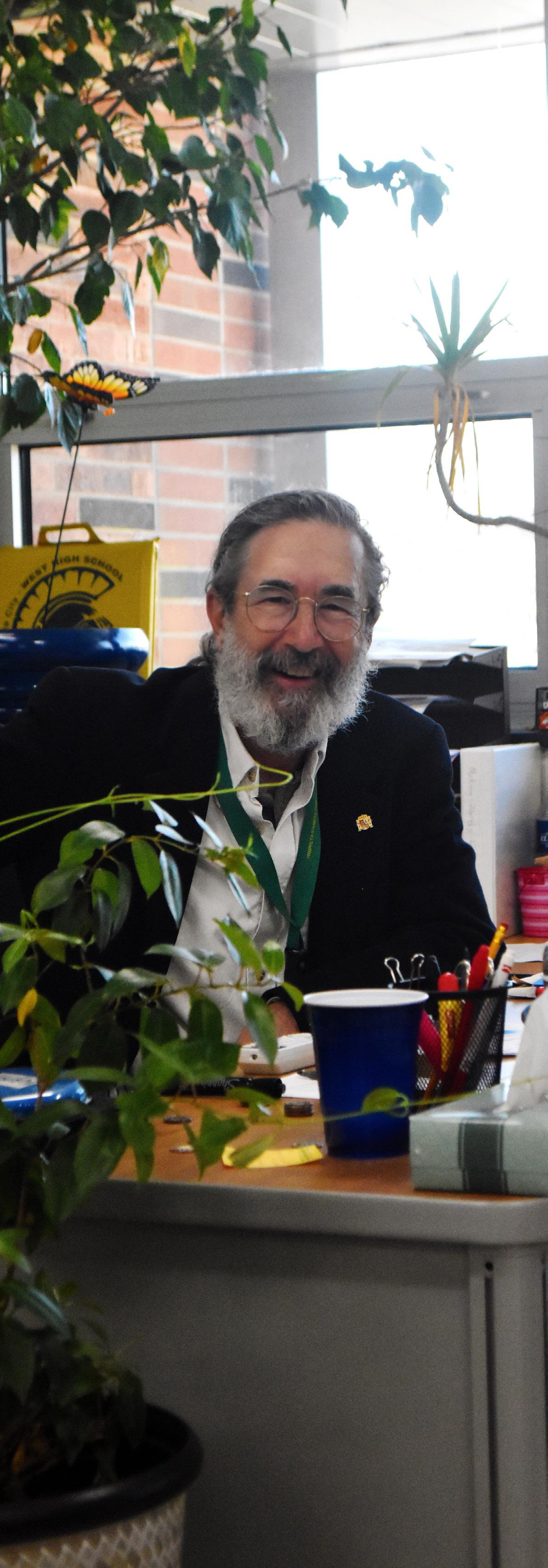
“I thought I was going to go be a teacher, and I loved working with wood. I loved my industrial arts classes; [they were] probably the classes I did the best in. I sometimes struggled with academics, and so I really thought that was my path,” Merkle said.
Merkle’s parents were educators, with his dad serving as a high school principal and his mom as a teacher. Merkle followed in their footsteps by attending the University of Northern Iowa. After graduating, he found it difficult to find open job positions, as woodworking declined in popularity and was considered a less useful skill for students to learn. Merkle tried teaching industrial tech; however, he didn’t feel the role was right for him.
“I really struggled to find a job that I thought I would be good at or was qualified for because I was interviewing for graphic arts and computer tech stuff, and [interviewers] just didn’t feel I was that knowledgeable,” Merkle said.
Eventually, Merkle got a job at Grinnell Middle School in Grinnell, Iowa as a paraeducator substitute teacher. While in this position, he observed many special education classes.
“I realized I really liked this special ed class. Then in the summer, I decided to go back [to school] and get my master’s degree,” Merkle said. “I think I matured a bit over those five years of being out of school and started getting really good grades in college for my master’s degree.”
Merkle found his position in Grinnell fulfilling.

“I did it for about a year, and I really loved it,” Merkle said. “That’s
DESIGN BY SILA DURAN PHOTOS BY SACHIKO GOTO, ISABELLA TISDALE & COURTESY OF STEVE MERKLEwhen I [realized] I wanted to be a [special education] teacher.”
Following this experience, Merkle was offered a job in Atlantic, Iowa as a special education teacher. Merkle realized that initially struggling in his job search was a blessing in disguise.
“They needed special ed teachers badly, so they hired me halfway into my required 30 hours of special ed teacher [training]. I really loved it in Atlantic,” Merkle said.
Merkle connected with special education due to its more individualized approach to teaching and learning. He enjoys finding what each student needs and how he can help them.

“I think [students] have to learn [their] skills, and as a teacher, I need to learn how to identify those in special education kids and teach them techniques or ways to do things,” Merkle said.
Merkle’s understanding of the diverse needs of students comes from his own experiences as a young student. As a sixth-grader, Merkle re-
ceived academic support when a special education teacher taught him about executive functioning — a mental process that allows one to focus and plan successfully through lists and schedules.
“That was a big changing point in my life. I had to rethink how I saw [learning],” Merkle said. “That’s where I really started turning my educational and academic challenges around.”
Since learning more about his ideal learning approach, Merkle feels he is better equipped to help students, especially those in special education.
“My struggles definitely taught me … you’ve got to learn how to find the right people to help you, and teachers’ jobs are to do that,” Merkle said.
Merkle emphasizes how learning is a lifelong process.
“Surprise! If you’re thinking you’re going to go to college and be done [with learning], that’s not usually how [it works]. [You] continue to educate yourself throughout life,” Merkle said.
From
around
in his pickup truck to carrying bags of cookies and scotcheroos through the hallway, Merkle does it all to support his students.
“I always told [former Principal] Jerry Arganbright, ‘You know, if you ever hire a new guy [after] me, he’s gonna have to have a pickup [truck],’” Merkle said.
Merkle appreciates the liveliness required in special education.
“[Special education] keeps me moving. I kind of enjoy staying busy and moving around the building,” Merkle said.
After students pitched a staff versus student basketball game in 2017 to raise awareness for Community Inclusion Club, Merkle organized the
basketball games, which bring together the staff, special education students, basketball teams, cheerleaders and band. Social studies teacher Gary Neuzil is an announcer for the games and appreciates the community it creates.
“[Merkle] has made sure that his students are part of every aspect of our school, and I think that’s a huge accomplishment. He has had so many programs that incorporate cooperation and support from the student body,” Neuzil said. “I hope [the CIC basketball game] continues, and I hope [Merkle] continues to bring in more and more students and families. It is probably the most feel-good event of the school year.”
Long before the CIC basketball games, Merkle started the tricycle project in 2004 to build community for his special education students.
“The goal [for the trike project] was to create tricycles that anybody could ride based on their abilities or the lack thereof,” Merkle said. “It’s fun to see kids that haven’t ever been on a ’cycle try it out. It’s just a neat
thing to do.”
Watching his students succeed is one of the many reasons Merkle enjoys his job. Camp Courageous — a special education summer camp — offers him another place to see this. After learning about Camp Courageous on a camping trip before starting his teaching career, he was inspired.
“I went up [to Camp Courageous] one year, and I thought, ‘Well, if I ever get into special ed, I’m [bringing my students to] Camp Courageous because the place was amazing,’” Merkle said.
Every year Merkle spends at Camp Courageous, he finds joy in watching kids improve their skills over the years.
“[Students] do stuff that we would all find hard. To see kids make it two feet off the ground one year, and then a couple of years down the road, they’re climbing clear to the top of the tree, those things are really neat,” Merkle said.
Regardless of how much effort and time Merkle’s many projects take, Neuzil knows Merkle continuously prioritizes the growth and joy of his students.
“There are so many different things that he does that we don’t recognize because he just does it,”
Neuzil said. “He’s doing it 100% for his students, not for himself. That’s what makes him special.”
Merkle believes that these community projects are essential to his students’ growth.
“I’ve always had a theory that if you can find what motivates a student, that’s 90% of the game. I mean, if they’re not motivated, then you’re fighting all the way to teach a skill,” Merkle said. “If [a project is] a hook to get them to enjoy school and find purpose here at West High, I think it’s a worthy project.”
A long-standing project that Merkle spearheaded is the recycling routes at West. Merkle, his students and paraeducators devote time to picking up recycling from each room in the building. As his students work on recycling, they build skills like communication, following routines and sorting materials.
“When I see [growth] happening and [students] breaking some of the social barriers that were challenges as [they] went through high school, it’s a pretty good feeling, like I accomplished something,” Merkle said.
Merkle believes that supporting paraeducators is also important to building a supportive and successful special education environment at West.
“You need to empower your paraeducators. I’ve always tried to be an advocate for them and make sure their job was the best job I could make it with whatever power I have to do that,” Merkle said.
Alice Jones has been a paraeducator at West for 27 years and remembers when Merkle joined staff. From the beginning, Jones has felt Merkle’s support and noticed he has a special way of working with students.
“[Merkle] is just able to get [students] to do things that I couldn’t. He was teaching me how to do the things that he was doing. He was getting the results where the other teachers weren’t,” Jones said.
Merkle believes the culture of camaraderie at West is a large contributing factor to the special education program’s success.

“I go to PE and music class almost every day to check in on my students and [see people working together],” Merkle said. “I’d say the people have changed, but [West’s] philosophy of excellence and working together like a family has been [constant].”
To Neuzil, Merkle is a big reason that West feels like a family.
“He is always positive, always supportive, always appreciative — every quality that makes not just an excellent educator, but a fine human being,” Neuzil said. “Anytime you have a colleague who is so talented with his students, you are motivated to do the same in your own classroom.”
From the minute Merkle steps on campus, his son Lyova Merkle ’23 notices the joy that being a special education teacher brings his father.
“He definitely comes into his job with a smile on his face. We’ll be walking through the parking lot, and he just starts yelling with excitement,” Lyova said. “It’s kind of embarrassing sometimes. But usually, it’s a fun sort of embarrassment.”
At the end of the day, being able to witness the growth of his students
HE’S
is what makes the job special for Merkle; seeing the growth of his students at the CIC’s annual Talent Show and Family Night is one of the most rewarding parts of his job.
“We’ve had some students that struggle with communication and being in front of people,” Merkle said. “When they finally perform at the talent show, you [can] see that breakthrough and the parents in the audience are just thrilled — it’s a pretty good feeling. Maybe even the word magical would fit.”
When Merkle isn’t engaged in his work at West, he spends time with his family and friends exploring the outdoors. Merkle finds peace in canoeing, hiking and woodworking. One of his favorite activities, though, is hunting.

“I just sit there and watch nature, and it’s relaxing. I might even fall asleep for a little bit,” Merkle said. “One thing that is amazing is it’s never the same. You have raccoons crawl right up the tree at your tree stand, a squirrel right above your head or birds flying around because you sit there and you’re quiet.”
Merkle also finds joy in embracing his hobbies with his children, Lyova and Sasha ’20. He and Lyova spend time together in a workshop at home building sheds, trikes for the school and scooters for Lyova to ride.
In addition to sharing his hobbies with his children, Merkle values culture and tradition. Merkle’s wife, Victoria Merkle, is Russian. Merkle and Victoria met through a mutual friend and had a long-distance relationship until they got married in 2000.
Similar to traditional Russian families, Merkle’s family lives with Victoria’s parents. This proximity to Russian culture plays an important role in the Merkle family, which he welcomes.
“I joke about how when you’re from a country like Russia, my goodness, it seems like every weekend we have something to celebrate,” Merkle said.
Merkle takes pride in the fact that both of his children are fluent in Russian. Lyova is grateful for his grandparents’ presence and the preservation of his mom’s culture.
“It’s definitely kept that Russian side alive,” Lyova said. “[Without my grandparents], they would just be family members [whom] I wasn’t as connected with, so I’m thankful that I know them.”
Even from a colleague’s perspective, Neuzil notices how important familial relationships are in the Merkle household.
“His children have the same qualities and dedication [as him],” Neuzil said. “His whole family, they are very close-knit. It’s just a pleasure to see his inspiring outlook on life.”
Lyova also admires his dad’s outlook on life and tries to apply it to his own.
“[He] thinks on the brighter side instead of wallowing in the bad, and I think just going into everything with that sort of [attitude] really helps me think more positively,” Lyova said.
Lyova also appreciates his dad’s sense of humor.
“He’s really just a person to light up the room. On top of his sense of humor, he’s really comforting as well,” Lyova said. “He can joke with you, but at the same time, he [is] a shoulder to cry on … he’s really supportive of everything I do.”
In addition to being supportive, Merkle tries to impart lessons to his kids.
“I teach my own children to pay attention to what’s available and then take advantage of it when it’s right there in front of you,” Merkle said. “Try not to miss lifetime opportunities.”
Lyova admires the impact that Merkle has on the West community.
“It’s just an inspiration of, ‘Oh, my dad went into teaching. Maybe I’ll go into teaching.’ And that’s what I’ve been looking at,” Lyova said.
Merkle hopes Lyova will find a job that means as much to his son as special education means to him.
“Well, [special education is] my life. It’s what I’ve done for 30 years,” Merkle said. “It’s what I do.”
Steve Merkle and Renee Meyer at Camp Courages.HE





With pockets galore, cargo pants are a fantastic, durable and comfortable alternative to jeans. These pants can be dressed up or down, making them perfect for any event.

Easy to slip on when hurrying out the door, these outdoor slippers will ensure that your feet are warm all day long. By adding fuzzy socks to the look, your feet will feel absolutely toasty.

Oversized, baggy sweatshirts are the way to go in the winter. Make your outfit an eye-catcher by adding a splash of color with a bright orange, purple or pink sweatshirt.

If your main goal is to stay warm, look no further than an insulated, lightweight puffer jacket. Throw it on over any outfit, and you’ll be ready to face the blistering cold while looking as stylish as ever. But, don’t forget an essential piece of any winter outfit — a turtleneck. It is an excellent, elegant layer under almost anything.

Styling outfits for the winter can be tricky, but WSS is here to help with a selection of the latest functional and fashionable clothing trends.UGG Tasman Slippers Basin and Range Patched Worker Pant from Backcountry J.Crew Ribbed Knit Cotton Turtleneck Sweater Gerry winter coat Thrifted “Iowa Law” oversized sweatshirt
As the new year begins, WSS recaps some of the blockbuster movies of 2022.
BY MRUDANI RAMKUMAR ART & DESIGN BY SOFIA WELLS-LUAfter the death of the previous Black Pan ther, the country of Wakanda is left with out a protector. When outside forces attempt to threaten Wakanda, Shuri (previous Black Panther’s younger sister) must defend her nation with the help of CIA agent Everett Ross and Okoye (a warrior).
When a rupture in reality wreaks havoc, Evelyn Wang who is an aging Chinese im migrant must unlock her newfound powers to fight the dangers of the multiverse. EE AAO also addresses generational trauma through metaphors for life in a sci-fi man ner.
After spending more than 30 years as the Navy’s top aviator, Pete “Maverick” Mitchell returns to the academy. He must train an elite group of Top Gun graduates for a dan gerous assignment that includes destroying an unsanctioned uranium enrichment plant.
After the destruction of Isla Nublar, an island with near-extinct dinosaurs, humans and dinosaurs are forced to live together. When locusts start destroying crops, the Dinosaur Protection Group aims to expose Biosyn, a genetics company, for putting the population at risk.
“It was so good. I love that it was a tribute to Chadwick Boseman, but there was definitely a void without the original Black Panther. However, they were able to continue the plot really well and it’s honestly one of the best movies I’ve ever seen.”
- Layan Ahmed ’25
“I think EEAAO did such a good job of combining anticipation with the awe factor to create one of the coolest movies
- Zach Barton ’23
“It was a really interesting movie since there are not many aviator movies and it had historical context which was nice. I also really liked the relationships the characters had with each other.”
- Sabrina Du ’25
“It was cool how all the different characters came together. It talked about the bioengineering of the girl and I thought that [concept] was pretty good. I liked it; it
- Hayden Dillon ’23


“Clue!” A classic board game of mystery, murder and strategy that became a play. I saw Theatre West’s rendition of “Clue!” Dec. 3, and it was a bloody good time. The acting was flawless, the props were realistic and the crowd’s emotion was immaculate.
The scene was set in 1968 at a dark mansion where six dinner guests under strange pseudonyms came together to uncover a world of blackmail and lies. Oh jolly!
I’ll admit I was a little confused when the actors started yelling for someone to call 9-1-1. This was pretty immersion-breaking, seeing as the national emergency number wasn’t introduced until over ten years later. It’s probably an oversight by the writers, but nonetheless, I’ll have to dock some points for that one.
BY JACK FURLONG & KATHERINE SHOPPAThe play went off the deep end from there. All of the actors started running off the stage, and the audience lights turned back on. So unprofessional!
Worst of all was their idea of audience participation. Apparently, Iowa City’s police department was cast in the high school theater program, which I didn’t even know was allowed. I don’t recall “Clue!” having any roles involving Iowa City police officers, seeing as it takes place in New England. The police ushered everyone out of their seats and out of the school, which was very disorienting. Being faced with modern cars and roads, especially since the play takes place in the 50s, really ruined the experience.
However, I appreciate Theatre West’s effort to try something new. Innovation like this is what drives theater forward. Closing the school for a month after the show was a bold move and really added to the realism. Even arresting a cast member for murder? They really went all out, and I admire that.
Theatre West’s “Clue!”? I give it an 8/10.
West’s administration attempted to curb the number of unexcused tardies and absences with “No Tardy December,” a system in which students get locked out of the classroom until they get a pass and sufficiently waste 10 more minutes of class. In the following months, a new three-step plan will gradually roll out.
Administration introduced “No Bathroom January” Dec. 22, and construction workers began removing all toilets from the school to stop students from missing any precious instructional time. Students have found this extremely difficult, leading to administration’s implementation of bladder training Social-Emotional Learning lessons.
“I cannot hold my bladder. It got so bad I peed myself during PE and had to go home,” Urania Ophten ’26 said. “I didn’t return to school for two weeks after that; I was too embarrassed.”
The next step in the administration’s plan is implementing a personal tracking device strapped to every student’s chest.
After passing time begins, the device will initiate an audible countdown. Every minute spent in the halls increases the volume of said device, with the last 30 seconds unleashing an ear-screech-

ing siren, immediately indicating the student’s whereabouts.

“The timer should encourage the kids to get to class. If it doesn’t though, we will track them down. And when we find them, we will personally escort them to ‘The Council’ where their fates will be decided,” West administration wrote via email.
The administration is always looking for ways to prepare West students for the future. After watching “Matilda,” administration is discussing a new idea for disciplining tardy students, inspired by Principal Trunchbull.
“It’s safe to say, we’re nailing it,” West administration wrote.
Warning: the contents of these pages are entirely satirical. These stories should not be taken seriously as they bear faint resemblance to reality. Unless…

Taylor Swift fans, known as “Swifties,” spent all of Nov. 15 anxiously trying to buy tickets for Taylor Swift’s “Eras Tour.” Swifties were met with computer errors and the inability to check out their tickets, leading to widespread anger toward Ticketmaster, the company running the sales.
The public outrage led James Stephens, an ex-employee at Ticketmaster, to publish an exposé via Twitter highlighting the true reason behind Ticketmaster’s failure.
“Everyone at Ticketmaster is completely feral for Taylor. They used company funds to buy their own tickets before they went live,” Stephens said. “It’s insane. I tried giving my ticket to a friend, and they ran me out of the office. They said if I came back, they would hunt me down.”
This sent Swifties into a frenzy of allegations, debating who deserved tickets the most. The Radish reached out to Ticketmaster employees to comment on these allegations.
“We admit it’s all true. But what makes you think you deserve to see her more than me? I know her better than she knows herself. I’ve been to every Taylor Swift concert, yet the guards always kick me out before I can get on stage,” Ticketmaster employee Rebekah Harkness said.
She then proceeded to get up from her chair and smash the inter-
view set out of pure rage.
“It’s a dog-eat-dog world, and you’re on your own, kid,” Harkness said. “If you aren’t willing to wait outside her tour bus for 22 hours to watch her, you shouldn’t have these tickets.”

The Radish subsequently told Harkness to chill out.
“Look, I don’t want any bad blood here, boys,” Harkness said. “Ticketmaster is the most transparent and fan-friendly ticketing system in the United States. We are fans, and we are friendly to ourselves.”

After Elon Musk’s Twitter takeover Oct. 27, Musk immediately began implementing his vision for a revamped platform emphasizing freedom of speech. He started by firing over half of Twitter’s employees, most of whom didn’t fit Musk’s criteria.
“I overheard some employees talking about their wives and how much they love them,” Musk said. “Anybody who knows me should know I don’t tolerate happy, healthy relationships here.”
To monetize the platform and make everyone feel special, Musk added the feature Twitter Blue, allowing people to buy verification for $8 a month.
However, this created many issues on Twitter with impersonation accounts using their verified status to act as celebrities and govern-
ment officials. After receiving backlash about Twitter Blue, Musk held a press conference Jan. 8 about his newest idea for monetizing the platform.
“Users have pointed out the overwhelming increase of impersonation accounts on the site — an unintended side effect of Twitter Blue,” Musk said. “We hear you. Our goal is to provide the best possible experience on our platform, which is why we’re unveiling Twitter Fraud, our newest program allowing you to steal anyone’s identity legally for only $20.”
While the crowd was shocked, Musk seemed extremely excited to unveil the news, reporters flooding him with questions about how Twitter will execute this feature and its possible effects. To ease their worries, Musk assured them the new feature would be successful.
“Don’t worry; it’s going to be great. I got a few of my Twitter employees to impersonate my wives and tweet me words of affirmation,” Musk said. “Now I finally feel like they love me, and I’ve never been happier.”
There were many shocked gasps from the crowd and flying questions.
“Oh come on guys, it’s for the best. The employees are happier, my ex-wives are happier and now Twitter users will be happier too,” Musk said.
Sitting around the table with sweat dripping down their backs, students carefully pick their team that will be in place for the next fourteen weeks. As students shuffle through tabs on their computers, looking closely at statistics and projections for each player, their only thought is using these numbers to craft a winning team.
Fantasy Football is a game in which players create their own team of football players from real NFL players. They compete against other fantasy team owners in their league to score points based on the performance of their players in real NFL football games.
Wilfred Winkenbach, a man who had a stake in the Oakland “Las Vegas” Raiders, created Fantasy Football in 1962, basing it on other fantasy leagues he had started. Fantasy Sports Publications described him as “the single most innovative force in the history of Fantasy sports”. Winkenbach intended his league to be private; the only people who knew about Fantasy Football at the time were his other league members. Before the invention of the internet and the Fantasy app, Winkenbach and others played Fantasy Football through print publications.
“My dad played it growing up back in his day and didn’t have the app,” said Ryne Vander Leest ’23, who has been playing Fantasy Football for a decade. “They had to look at a newspaper and
write their players down, so it is pretty cool to see how it has evolved because now it is all remote.”

In 1969, Winkenbach took the leap forward and told some patrons at a sports bar about his league, expanding it from his original group. The bar patrons were interested in it, and surely enough, several other local leagues were formed purely by word of mouth.
In 1997, CBS started an online Fantasy Football league and it immediately became popular. Commentators and analysts were talking about
Fantasy Football and other fantasy leagues on air, and that free advertising only made the game more widespread. Millions in the U.S. now take part every year, and students at West are no different.
“This is my group’s 10th year playing, I believe,” Vander Leest said. “Throughout the years, our group has had random people in and out. I got into it because of my brother, so most of his friends were in our group during elementary school. My baseball friends were in it too.”
Certain achievements on the field, such as gaining yards, scoring a touchdown or making a field goal, contribute to a team’s fantasy points for that week. Fantasy owners also have bench players, generally consisting of six players of any position, who score points like everyone else; however, the points they earn will not be counted towards the weekly total.


Gerik Fish ’24 explains how looking at current statistics of NFL players contributes to whom he drafts for his team.
“When you draft, you see projections to show how many points the experts think they’re go-
ing to score,” he said. “So based on projections or their name, if you know they’re going to be good, you draft them.”

Nine-year Fantasy Football player Harrison Reimers ’23 bases his draft picks on past performances.
“I normally draft people who end the previous year really strong. I also sometimes draft people I had previously just because I want to continue to see them do well,” Reimers said.
Drafting players takes time and patience. It involves a lot of thought, and students want to make sure they are choosing the best players for their team. Vander Leest believes that the name and age of players affect who students draft, as well as how frequently they get injured.
“A big part of drafting is how injury-prone [the players] are. If they get injured a lot, you don’t really want those people on your team,” he said. “Another factor is how young they are. Tom Brady was great, but the main question with his career was whether he would still be good as he got older.”
Fantasy Football leagues aren’t just for fans
West High students share how Fantasy Football fosters community through friendly competition.
BASED ON
OR THEIR NAME, IF YOU KNOW THEY’RE GOING TO BE GOOD, YOU DRAFT THEM.
anymore. An increasing number of NFL players are hopping on their computers and agonizing over lineups of their own.
“Some NFL players on Twitter will talk about themselves like, ‘Oh, I had a good fantasy day today,’” Vander Leest said. “Austin Ekeler from the Chargers is definitely one guy that sticks out to me for that. He always talks about himself being a really good Fantasy player. It’s just kind of funny to see some of the guys do that and that they’re aware they’re being watched for Fantasy.”
Students will often find themselves watching NFL football games because their fantasy players are playing rather than their dedication to a team. Sometimes they have to decide between watching their favorite team or watching their chosen players.
“I prioritize watching my Fantasy players over my team just because I find it enjoyable to root for players, but I still find myself watching most of the games,” Reimers said.
Other participants only watch for their Fantasy players with no interest in the NFL otherwise.
“I have never had a favorite NFL team, so really the only reason I watch NFL games is to keep track of my players,” Fish said.
Community is an integral component of Fantasy League. Getting together to watch games as a group has created lasting bonds for Reimers.
“We always find ourselves texting each other throughout the season, making fun of each other and hoping people win. It also brings us together because we watch games together and talk throughout them as well,” Reimers said.
Reimers appreciates the sense of camaraderie Fantasy Football has brought to not only his family but people across the globe.
“[Fantasy Football] is bringing people together across the country who don’t know each other. It is becoming more inclusive of everyone because of how popular it’s gotten over the past couple of years,” Reimers said. “Everyone in my family participates in a family league we have with my cousins, which is cool to see, because my siblings, who never pay attention to football, watch and follow the people on their team.”
Along with bonding families, Fantasy Football can also strengthen connections among friends.
“With my friends, there are conversations literally just about Fantasy Football,” Vander Leest said. “I think that’s the first thing we talk about every time we see each other, so it’s a great conversation piece, and it definitely just lets you be able to talk about more stuff.”
Fish is thankful that Fantasy Football has strengthened his bond with his friend group.
“I think it definitely has brought us all closer. I have something to talk to people about that I wouldn’t normally talk to. I think it just brings everyone together because we all have a common ground to talk about in Fantasy Football, and I think that’s really cool,” Fish said.
1962
Fantasy football was created in Oakland by Wilfred “Bill” Winkenbach, owner of the Superior Title Co. in the Bay Area and limited partner in the Oakland Raiders.
1987
The first national magazine dedicated to fantasy football, Fantasy Football Index, was produced by Ian Allan and Bruce Taylor.

2006

1963
The first draft was held at Winkenbach’s house with eight league members. Pro Football Hall of Famer George Blanda would go down in history as the first fantasy football draft selection
1997
CBS launched an online fantasy football competition, with other sports networks and websites quickly following suit.
What do you think of when you hear the word ‘gym’? Maybe you think of a stack of dumbbells and a row of treadmills or pictures of muscular men hogging the racks. However, to many students and teachers at West, the gym feels more like a second home.
The pandemic provided an opportunity for many to try something different. Swimmer Hans Rouwenhorst ’25 stepped into the gym during quarantine and hasn’t left since.
“[Lifting was] a fun way to get exercise in quarantine; I wanted to stay fit. I found out I really liked the environment, the culture, and I just pursued it from there,” Rouwenhorst said.

Mohana Sunkara ’23 also began her journey during quarantine.
“I started during COVID because I had the time. If I don’t work out at home, I go to the gym every day with my dad,” Sunkara said.
For some, the West weight room fostered a passion for the gym. This was the case for varsity tennis player Junze Sun ’25.
“[The tennis team] invited me to come lift with them in the mornings. It was a good experience, and I got closer to the team,” Sun said.
English teacher Amari Nasafi, a former professional bodybuilder and 2019 International Pro Elite Men’s Physique champion, began his career after finding that the gym was an outlet for his everyday frustrations.
“I got into it kind of late, I was about 26. I had experience with weights when I was a kid, but never did anything consistent [until] 2008,” Nasafi said. “I was always a big reader and liked intellectual things, but one frustrating thing … is sometimes there’s not any tangible product.
There’s no ‘I put in this input, and I got this output.’”

In the gym, Nasafi is able to see a visible result. While a stronger and healthier body is beneficial, Nasafi has found that his mental health has also improved since starting to go to the gym.
“It’s been great for mental health. [There have] been some things that I’ve learned from the gym that I’ve transferred to other areas of my life about discipline, consistency and patience. [The gym creates] a healthy level of routine in your life,” Nasafi said.
With consistency at the gym comes character building. Another varsity tennis player, Jonathan Fan ’23, began going to the gym with hopes of becoming stronger. He ended up seeing more than just physical results.
“One aspect is related to confidence, being able to see muscle building and also being able to lift more weight,” Fan said. “The competence [of being able to lift heavier] gives you a confidence boost.”
Rouwenhorst has also seen his personality change because of his gym experience.
“It helped me mature in a lot of different ways,” Rouwenhorst said. “I’ve learned a lot of valuable life lessons from [going to the gym], and it’s something in terms of a whole character switch. You get out of your comfort zone, you start pushing yourself when you go through something hard.”
The environment of the gym plays a big role in determining one’s experience. Jason Moore, the general manager at Performance Health and Fitness in Coralville, ensures an inclusive environment at the gym he oversees.
“We have a very diverse group of people who exercise here, from athletes to bodybuilders to elderly people with walkers. We have some handicapped people that come in, men, women, all ages, you name it,” Moore said. “The nice
thing is they all work out together. We make sure that we have a little bit of everything for everyone. That way, they feel welcome.”
Sunkara finds that going to a familiar location makes working out more enjoyable.

“Everyone knows each other [and] talks to each other even if they’re much older. Whenever I go, I always see at least someone talking to each other. It makes me want to be there,” Sunkara said.
Similarly, Nasafi feels like the gym should be a safe place for everyone.
“I feel at home, where I can go to get a release and where I get a lot of joy out of it,” Nasafi said. “I try to tell people who are just trying to get started that there will come a time where it becomes pleasurable and almost like a healthy addiction.”
However, what begins as a “healthy addiction” can sometimes go downhill when people are faced with the toxic side of gym culture.
The world of bodybuilding contains many expectations for physique, often unachievable through natural means. These expectations made Nasafi initially hesitant about getting into bodybuilding.
“Two people started to say to me in the gym, ‘Hey, have you ever thought about competing?’ I had a lot of qualms [about competing],” Nasafi said. “In my preconception about bodybuilding culture, I felt like the only way you can compete is if you’re on gear enhanced or on steroids.”
Steroids drive many of the bodybuilding images displayed on social media
“[Gym] TikTok has a lot of influencers and various bodybuilders on substances like steroids, but say they’re not. It creates a picture that it is possible for the regular human to achieve that type of body,” Fan said.
Additionally, food and eating habits contribute to the toxic culture when bodybuilding or attending the gym. Eating techniques, such as




bulking and cutting, often become a habit for some. With hopes of turning fat into muscle, some bodybuilders/lifters will “bulk” with a high-calorie intake, then “cut” by not consuming large amounts of food. The 2021 Canadian Study of Adolescent Health Behaviors found that men and women who participate in bulking and cutting are more likely to have eating disorders and muscle dysmorphia.
Nasafi has seen this trend’s effects firsthand.
“Consistently dieting for shows can negatively affect [competitors’] health, and I’ve seen that with both men and women. Dieting so much and so frequently [can lead to] losing your hair,” Nasafi said. “Psychologically, [people] start to see the way [they] are on stage, which is not realistic to maintain. [They] get really attached to that image and then try to maintain [the phy-

sique] all year round, which can become super unhealthy.”
Despite the negative impacts of the gym, Moore believes that if a healthy relationship is formed, the results are beneficial. Getting started at the gym may seem like a lot of work, but Moore recommends that people should give the gym a try no matter where they are in life.
“Don’t be intimidated by [gyms]. I always had a bad stigma about them, [but they] are a positive, friendly place,” Moore said. “Just know that when you come in with the mindset that you’re just beginning, don’t get discouraged. There’s going to be progress.”



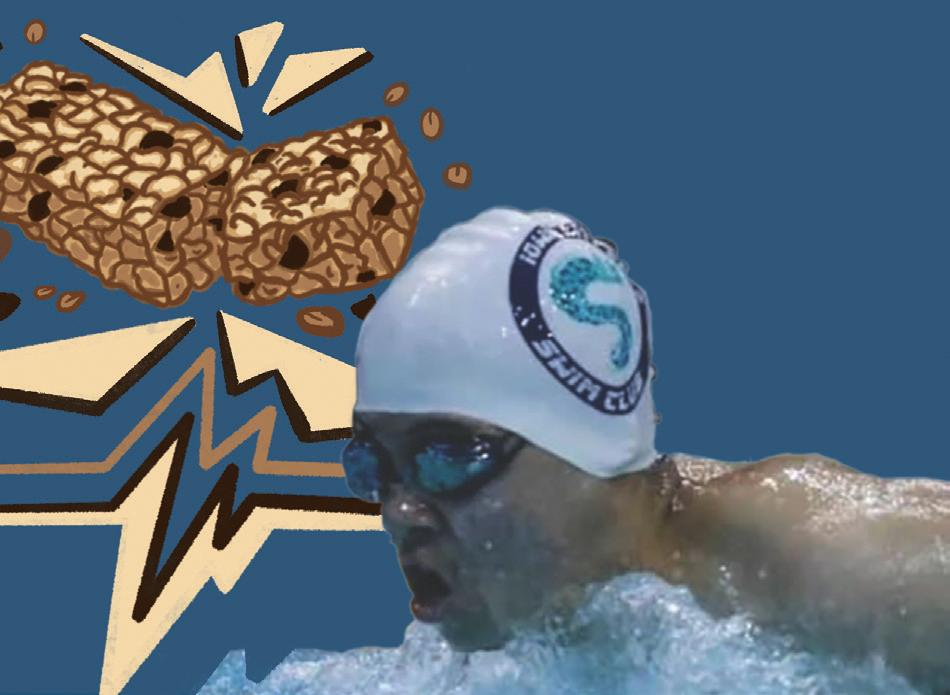

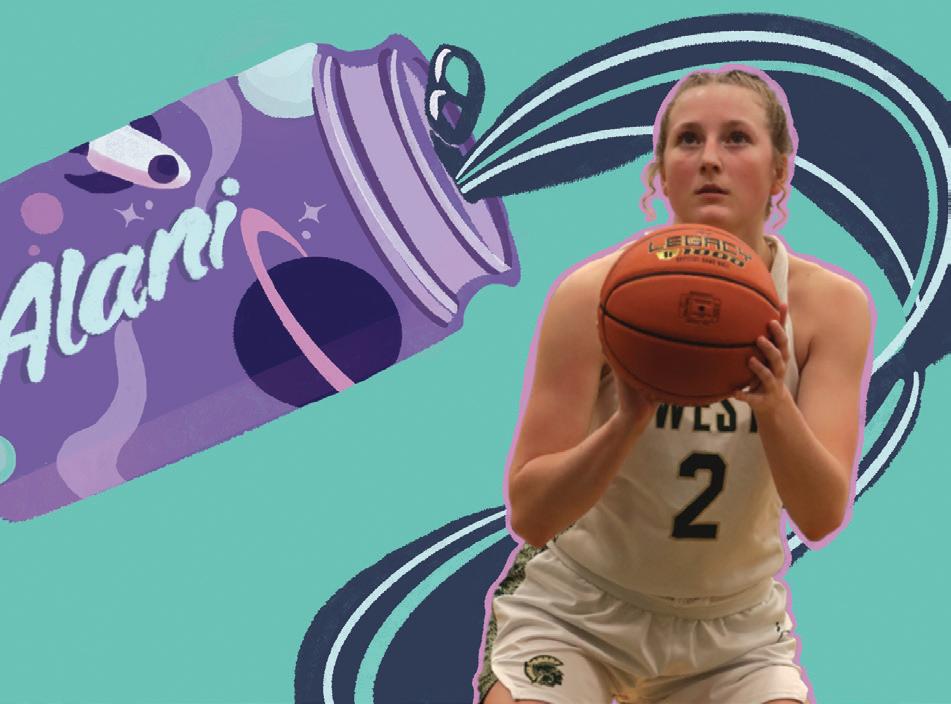
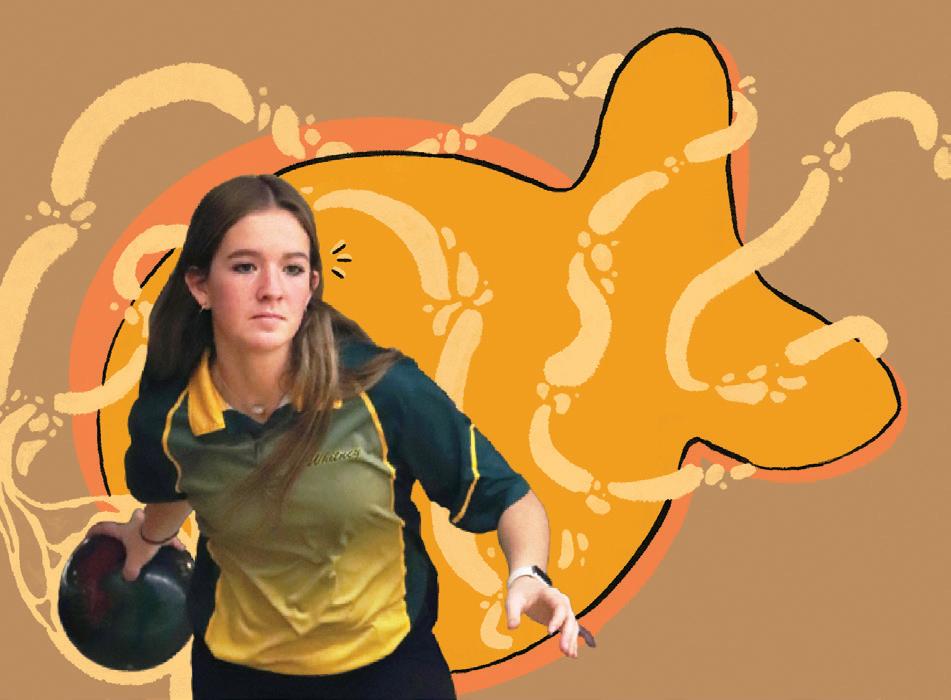







ou’re too young to be sick” are words I’ve heard fairly often. I have something referred to as a “dynamic disability.” This means my symptoms can vary greatly, from experiencing mild joint pain to being unable to stand and having joints dislocate on a whim. I began to use mobility aids such as canes and crutches last year. It was frustrating at first, not being able to depend on my body as much as I used to, but after a few months, I realized that it’s okay to need help. My aids allow me to participate when I am struggling and give me a new degree of freedom. However, the reactions from other people have been mixed.
I receive my fair share of back-handed comments, especially since I started using a wheelchair this year as I’ve struggled to walk reliably. I don’t think people realize that not everybody who uses a wheelchair can’t walk. I am what is called an “ambulatory wheelchair user,” or an individual who uses a wheelchair but can still walk. I’ve had people tell me that if they could use a wheelchair, they would never walk again.

That’s not how I see it. On the days I need a wheelchair, it’s because I’m in too much pain to walk. On those days, there is nothing I want more than to be able to walk without pain.
In some ways, using a wheelchair is more difficult than walking. Trying to navigate the hallways at a seated level is very overwhelming. Not only do I get bumped into and barely have enough space to maneuver, but also have to worry about doors. West High isn’t as accessible as you may expect, even though they follow all the legal requirements for accessibility. Only the main door has a handicap door button; the office doors and bathrooms don’t. The elevators are inconveniently located, so it can take me a lot longer to get to classes. I didn’t notice until my mobility got worse, but a lot of classrooms aren’t organized in a way that can allow wheelchairs through either.
When I have to ask teachers or other students to help me move desks so I can get to my seat, I feel like an inconvenience. The world tends to be designed with able-bodied people in mind. My need for mobility aids can make me feel like I’m making things more difficult, when in reality, I’m just trying to do normal things such as go to class or roam around downtown. Whenever that happens, I remind myself that I deserve to take up space and have access to the resources I need; it’s not shameful to need extra help. Using mobility aids, especially as a teenager, has been stigmatized. I’ve had multiple people, both kids and adults, tell me that I’m “just being lazy” and I “don’t look sick.” People need to recognize that there is no “right age” to need mobility aids. Harmful comments like these can discourage people like me from using mobility aids even though they help control pain and provide support.

It doesn’t stop at negative comments. I’ve also noticed that a fair number of students don’t understand mobility aid etiquette. This is understandable because the majority of students haven’t had to use them before, but some things should be common sense. One important part of mobility aid etiquette is that you shouldn’t touch other people’s mobility aids unless they ask for help. The first day I was using my wheelchair, I remember someone came up behind me, grasped the wheelchair’s handles and started pushing me. It wasn’t even someone I knew. Grabbing someone’s mobility aids is similar to taking someone by the hand and forcefully dragging them somewhere. You would never do that to someone you don’t know, so why would you do it to a wheelchair user? We deserve the same respect as everyone else.
There seems to be a misconception that young individuals who use mobility aids do it for attention. We’ve all heard the bit about the girl who always seems to have something new wrong. Well, I’ve realized I am that girl, and there’s nothing wrong with that. I’ve come to accept that my ways of getting around may need to be a bit different than others, but that’s just because I’m taking care of my body and giving it the help it needs. You should take into account that every brace, mobility aid and accommodation is there for a reason. It is so frustrating to always have something wrong, but that’s just how it goes for me. I would so much rather have a working body than attention. In fact, it actually took me until my junior year to be able to wear my braces and use mobility aids openly because I was scared of people questioning if I was faking. I was scared of the attention I would get. I didn’t want to become that girl who always had something new wrong and a thousand different braces, but there should be no shame in that. Everyone deserves access and respect, regardless of the accommodations they need to get through the day.

There’s a joke in my friend group that one of us is a College Board whale, or a customer who is routinely high-paying. They’re the College Board’s perfect consumer: willing to take the SAT over and over again to inch towards perfection 10 points at a time and suffer through $100 AP test after $100 AP test. But why does the College Board need these kinds of consumers? It seems like, despite being a nonprofit organization whose mission is “to connect students to college success and further opportunity,” many of the College Board’s policies are more in line with connecting students’ bank accounts to their own.
Unlike the title suggests, nonprofit organizations, such as the College Board, are welcome to make plenty of profit. However, in order to maintain their tax-exempt status, earnings can only be given to individuals as salaries and cannot be used to promote private interests or campaign for or against a political party or candidate. These guidelines don’t prevent the College Board from maximizing its profit to pad the pockets of its executives — CEO David Coleman made $1,418,038 in 2019, compared to $181,739, the average salary for CEOs of nonprofit organizations — and further their chokehold on the market for getting college credit in high school.
The first exploitative policy I have noticed is putting the exam registration deadline in November. Only two to three months into the class, students have to decide if they will do well enough on the AP test to justify paying for it. Sure, there’s late registration, but that adds an extra $40 to your order. On the other hand, if you want to cancel an exam, you don’t even get a full refund. You still have to pay $40 for daring to think you wanted to take the test.

At first, I gave the College Board the benefit of the doubt. Maybe they do need seven months to prepare for the exact number of students taking the test. However, the AP exam registration deadline used to be in March until 2018; there is no logistical reason to make students register so early. The College Board claims the switch was motivated by a pilot program conducted in 2017 that found the new deadline increased low-income student registration by 33%. How-
ever, only 23.6% of the additional low-income students scored a three or higher. If the College Board truly seeks to help low-income students, shouldn’t they also offer a full refund? This would keep the benefits of increased low-income student registration while avoiding trapping unprepared people into taking an AP test. Instead, the current policy prioritizes the amount of revenue the College Board earns.
Another predatory practice of the College Board is charging students if they decide to send their SAT and AP scores to colleges. Apparently, simply paying to take the tests isn’t enough; you also have to pay to get the test results into the hands of colleges. While self-reporting has recently become an accepted option during the application stage, upon enrolling in a university, students have to pay to have their official scores sent. These $12 and $15 costs are really just hidden parts of the price to take the SAT or AP tests. There are four free score reports available for the SAT, but you have to choose to send these before you know your score. The College Board can afford to send our scores to a few schools for free, but they want to make money off of students who are too anxious to send their scores without knowing what they are yet. The free AP score report is slightly better, considering it can be used at any time, but it only allows you to send your report to one school per year.
The College Board gets away with these practices because it holds a monopoly on getting college credit in high school. AP tests, while not the only college credit option, are definitely the most popular choice. The International Baccalaureate, which provides programs for juniors and seniors to take a more rigorous course of study to potentially earn college credit, is only available at 1,918 schools in the U.S. In the ICCSD, students have a few other options for college credit, such as PSEO classes at the University of Iowa or Kirkwood Community College; I encourage people to try them instead of taking another AP class. However, many students in other districts likely don’t have these options, and even here at West, they can be inaccessible due to transportation issues. Unfortunately for us, it seems like the College Board has both Boardwalk and Park Place. All we can do is hope they don’t start building hotels.

The College Board’s policies often prioritize making a profit over helping prepare students for success in college.
Mia Shirley ‘26 performs with the Varsity Jazz Band during the annual Jazz Cafe Dec. 10 in the cafeteria. The performance featured all three jazz bands and two guest artists from the Herbie Hancock Institute.
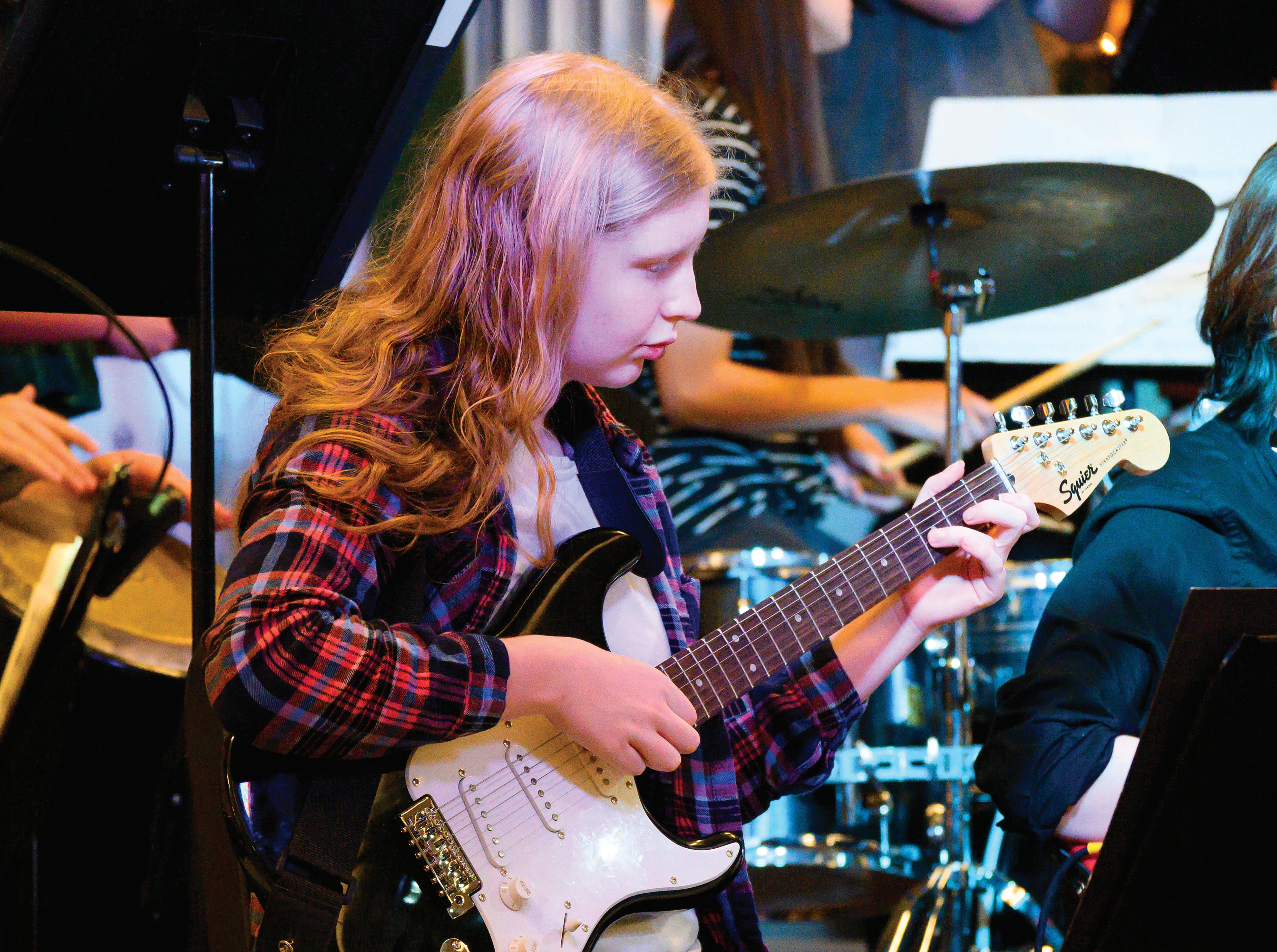
With Valentine’s Day around the corner, the hallways are filled with sideways glances and bashful winks. Here are some of West High’s Missed Connections.
To the girl in Spanish class that can do a backflip, my stomach does a flip every time I see your pretty smile. <3
To the girl in my first-period French class who sits in the front: I think ur really pretty. Sincerely, the actor.
To the girl who wears a dress and dances in front of me after my third period, I feel the same feelings and am just too scared to admit it.
To the guy in my APUSH who magically disappears at the sound of the bell, how about you invest in me instead of stocks ;). From: anonymous
The student with cute glasses and black boots that always brightens my day, who always brings a smile to those around them, and gives the best hugs. Every time it rains I wish you and me were outside dancing and I want to kiss you so bad. <3
From Sasaki Senpai
To the person who wears the same crusty flannel and shirt all the time, who is a total movie snob, who sucks at responding to messages: somehow I’ve still caught feelings. Wanna go see a movie? I’ll listen to you talk through the whole thing.
To the girl with those spearing green eyes who made math worth going to in third tri last year: I wish I would’ve told you how I felt. I wish I could fall into your eyes. From: Wish I Knew
My dear Buccaneer, Seeing you race across the West High back lot in your Subie makes my heart race with the roar of one thousand eco-friendly engines. <3 HS
To the girl who does math, I wish we could solve the equation i<3u. - Your -1 to your 1